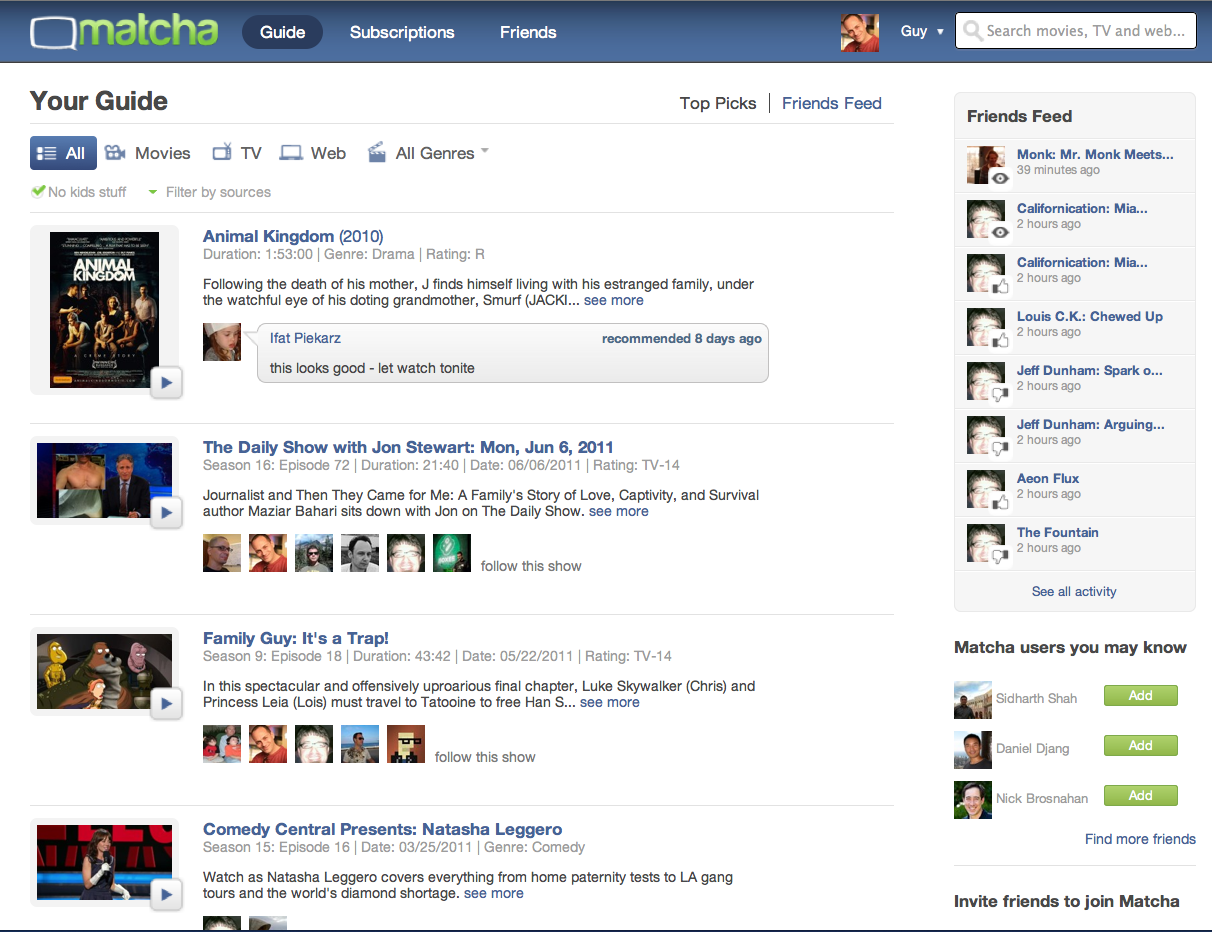 Netflix is great. I feel like I have to say that, now that it’s the single largest source of Internet traffic in North America. But, really, Netflix annoys me. I’m cheap, so I’ve opted for the streaming-only service, but the selection stinks, and I spend most of my time debating whether I should upgrade to the DVD service. And now that I’ve been rating movies for years, its recommendation system has become more refined, but I’m being told by Netflix that I should “discover” some movie featuring The Rock that I’d really rather not discover.
Netflix is great. I feel like I have to say that, now that it’s the single largest source of Internet traffic in North America. But, really, Netflix annoys me. I’m cheap, so I’ve opted for the streaming-only service, but the selection stinks, and I spend most of my time debating whether I should upgrade to the DVD service. And now that I’ve been rating movies for years, its recommendation system has become more refined, but I’m being told by Netflix that I should “discover” some movie featuring The Rock that I’d really rather not discover.
Like many others, I supplement my movie and TV consumption with Amazon Instant, Hulu, iTunes, YouTube, and more. The problem is, the experience is fragmenting. When I’m looking for a specific movie, I have to go search each of these services individually, and when I’m looking to discover new movies, I generally fall back on Netflix, but the recommendation system isn’t perfect.
This is why I’ll be turning to Matcha to help reduce the pain, the woes, the heartbreak. Matcha, a startup launching in beta today, is bringing the social graph to movie and TV recommendations and aggregating the millions of movies, TV shows, and clips floating around the Web for an enhanced search and discovery experience.
Matcha pulls in your video subscriptions to Netflix, Hulu, YouTube, and more — along with Facebook — to give you relevant recommendations for video content that you’ll actually enjoy. And you can click to watch right from the page.
Traditional recommendation engines that use collaborative filtering (users who liked “X” movie will like “Y” movie) have been around for awhile now, but results are often generic and superficial, often missing the personalization experience we’ve come to expect. When applied to video, which some would argue is social by nature, recommendations from those we know and trust is almost always preferable.
On the flip side, relying on friends for social recommendations only tells half the story. But with their powers combined, recommendations become more powerful and more personalized. After a year of algorithmic tinkering, Matcha has created a technology that relies both on users social graphs as well as traditional methods to provide a more augmented search and discovery mechanism.
In practice, this means that Matcha offers deep indexing of long-form online video sites (Netflix, Hulu, Amazon, iTunes, etc) as well as indexing of crowdsourced video sites like YouTube. It also tracks online activity, collecting usage and preference data from YouTube and Facebook “likes”, what you’ve shared, and what you’ve watched on over 100 video sites that Matcha indexes.
Matcha then serves you recommendations in an intuitive UI that offers “Top Picks” based on its social recommendation engine, as well as a timeline-based “Friends Feed” that shows what your friends are watching (and liking) in realtime. Users can also visit friends’ profiles to see what video content they’re consuming.
And because Matcha indexes over 100 video sites, users can search for specific movies, TV shows, or clips, which alleviates the pain of having to search individual sites for that obscure movie not offered by Netflix streaming. The search function also integrates with the social graph so that results will include content from your friends.
While co-founders Paul Petrick, Guy Piekarz, and Ilan Ben Zeev have built what appears to be a great service, it won’t be around for very long unless it finds a way to make money. The team is still defining the optimal revenue model, but it looks like display or in-video advertising might be in Matcha’s future. I think we’re all pretty tired of in-video advertising, though, so I’d prefer to see telegraphed “featured recommendations” — or paid recommendations — instead of a slew of video advertising, but maybe that’s just me.
TechCrunch readers can get an early taste of Matcha’s service by signing up for the beta here. Check it out, and let us know what you think.